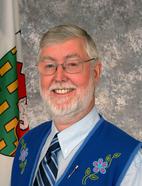Thank you, Mr. Speaker. I was following and supporting the Finance Minister’s report on the fiscal situation we are leaving for the 18th Assembly, noting the volatility of the global
economy, the mining industry and our economy; low revenues; and the need to diversify. That is until he suddenly and illogically looped back to saying that, therefore, we have to pursue the highly volatile and uncertain extractive industry even harder.
People are drained of any remnant of enthusiasm for this old way of thinking and they pine for recognition of the real opportunities we do have for vibrant, localized and cooperative economies that benefit our families, communities and businesses.
Last May people from across the Northwest Territories, convinced that a new vision is needed, came together with economists to explore localization of our community economies and what it could mean. They saw a viable alternative to a resource extractive economy, but one that must deal with two issues: climate change and poverty. This means changes to our economic model from a global one to a local one.
People were enthused. Localized economies enhance rather than degrade resources, target community
people
rather
than
transient
populations, take a grassroots approach and support diversity. They are achieved by removing fossil fuel subsidies, following the polluter pays principle,
refocusing
towards
diverse
local
enterprises rather than a single extractive industry, and replacing the glamorized industrial model based on external investors to an economic gardening model with local people in mind. The gathering recognized that poverty and inequity are bad for our economy but that the NWT could alter tax policy
– and I disagree with the A grade – so it
is investing in sustainable economic infrastructure and social and cultural development. Attendees recognize that globalized businesses don’t attend to local needs, highlighting why ownership is key. Public and cooperative ownership are ways to include local people and focus investment locally. This approach supports quality of life and the strengthening of social structure. In focus sessions, participants concluded that food systems are at the heart of localized economies and food security for everyone; that climate change, energy costs and health are three primary drivers of renewable energy adoption…
Mr. Speaker, I seek unanimous consent to conclude my statement.
---Unanimous consent granted
